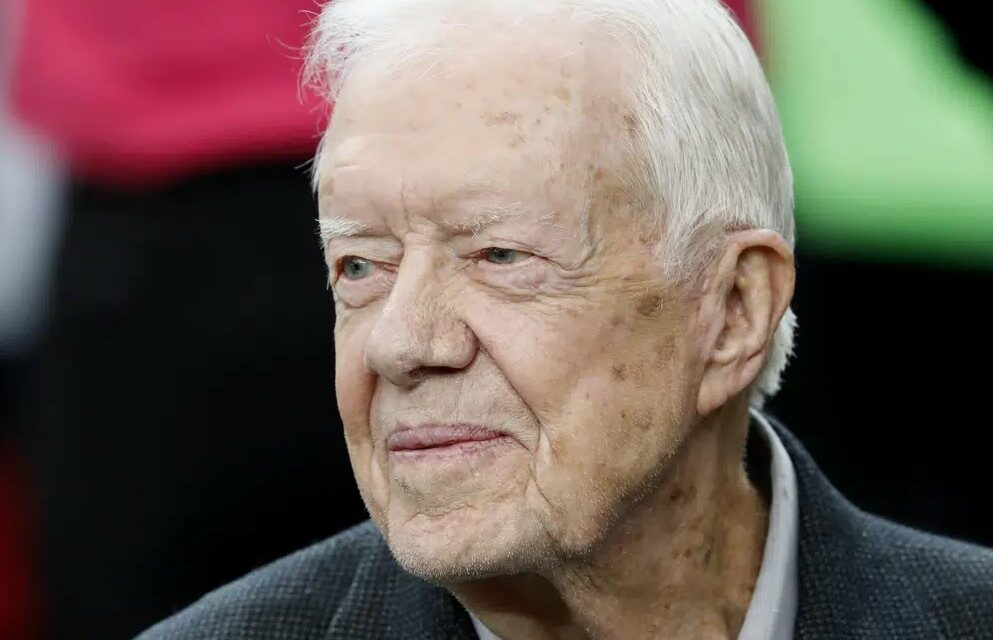This Just In – The truth does matter, regardless of our neglect in protecting it.
When my children were young, there would occasionally be the situation where I needed to get to the bottom of something getting broken or somebody getting hurt. When it was important (very, very important) I’d pull out the big gun – Don’t you dare lie to me.
Deliberately lying to your mother is the worst crime in my house, though my husband would say that making your mother cry is a big one, too. I place a high value on veracity.
When Jimmy Carter (as of this writing is on the glidepath of the end of his long life) was running for president in 1976, America was in a time of disillusionment. People often think of Nixon and the Watergate scandal as the source of that, but I think that’s not all of it. Recognizing the whole truth often requires the cooling effects of time and distance.
Candidate Nixon directly interfered with negotiations between President Johnson and the government of South Vietnam to end the war in 1968. Nixon, through a third party, told the South Vietnamese government to back away from the settlement and wait until after the presidential election. If he were to win, he promised, he would give them a better deal. Just for the record, this is a crime and a serious one.
LBJ confronted Nixon about this on the weekend before the election (you can listen to the call here). Nixon denied it. The audacity of this was only the beginning, history tells us.
Nixon’s promise of a “Secret plan to end the Vietnam war” was enough to get him elected. Then he went on to escalate that war and persistently lied to the public about success being right around the next corner. So egregious was this deception, Daniel Ellsberg, a military analyst working for the RAND Corporation, conducted a study that proved the US government was systematically deceiving the public about losses in the Vietnam war.
Ellsberg had been to Vietnam and reported back to Secretary of Defense McNamara on what he knew and what classified documents said about the war. These documents (and Ellsberg’s report) were the notorious “Pentagon Papers” that led to Nixon’s downfall.
(In 1971, Nixon’s “plumbers” thought they would find “the motherlode” of damaging information to discredit Ellsberg by stealing his medical files from the office of his psychiatrist. That office was located in the Watergate complex in Washington DC. The infamous break-in was interrupted and the files were abandoned on the floor.)
Ellsberg was unsuccessfully prosecuted under the Espionage Act for leaking the report.
The cover-up of the break-in was all revealed … along with the taping system installed in the Oval Office that made it possible for us to listen to that phone call between Johnson and Nixon on the eve of Nixon’s election.
After Nixon’s fall came the preemptive pardon issued by President Ford, who by all accounts was an honest and decent public servant. In the ’76 campaign, along came Jimmy Carter, the aw-shucks peanut farmer-Governor of Georgia who made his biggest impact in the minds of voters with one promise: “I’ll never lie to you.”
And thus America elected the image of a Gomer Pyle President who was never really that. Jimmy Carter was America’s first Annapolis-educated president. He was a nuclear engineer who led a Navy team of engineers to disassemble the Chalk River nuclear reactor after a meltdown in 1952. His service was nothing less than heroic. I’m no scholar when it comes to Carter, but I’d never heard any of that before this week.
Later in his lifetime of service, Jimmy Carter chose to use elected office to pursue his mission of pursuing peace. He was elected governor of his home state, then President of the United States. His political savvy may have been underestimated, as he zeroed on what his fellow Americans yearned to hear after Vietnam and a decade of deception from the top levels of the federal government.
We wanted to hear the truth. To the best of his ability (as an imperfect human) he delivered that truth to us during his time as president, but he proved his own truth during the balance of his life after being president. Jimmy Carter’s truth resides in his volunteer service in the pursuit of peace all over the world, in his Sunday School classes and his determined fight against brain cancer in his 90’s.
More than all of that, his truth is found in his choice to finish his life receiving hospice care at home so that he could be with his wife of more than 75 years for as much time as he has remaining. His family has gathered. His hometown of Plains is somber and waiting. Among the 30 books written by Carter, there are many about faith, including one with that title published in 2018.
Since he invested so much of his life in achieving peace for all of us, I hope that he and his family are receiving it this week as a well-earned reward for a life well-lived.
Photo via AP Photo/John Bazemore.
 Jean Bolduc is a freelance writer and the host of the Weekend Watercooler on 97.9 The Hill. She is the author of “African Americans of Durham & Orange Counties: An Oral History” (History Press, 2016) and has served on Orange County’s Human Relations Commission, The Alliance of AIDS Services-Carolina, the Orange County Housing Authority Board of Commissioners, and the Orange County Schools’ Equity Task Force. She was a featured columnist and reporter for the Chapel Hill Herald and the News & Observer.
Jean Bolduc is a freelance writer and the host of the Weekend Watercooler on 97.9 The Hill. She is the author of “African Americans of Durham & Orange Counties: An Oral History” (History Press, 2016) and has served on Orange County’s Human Relations Commission, The Alliance of AIDS Services-Carolina, the Orange County Housing Authority Board of Commissioners, and the Orange County Schools’ Equity Task Force. She was a featured columnist and reporter for the Chapel Hill Herald and the News & Observer.
Readers can reach Jean via email – jean@penandinc.com and via Twitter @JeanBolduc
Chapelboro.com does not charge subscription fees, and you can directly support our efforts in local journalism here. Want more of what you see on Chapelboro? Let us bring free local news and community information to you by signing up for our biweekly newsletter.


